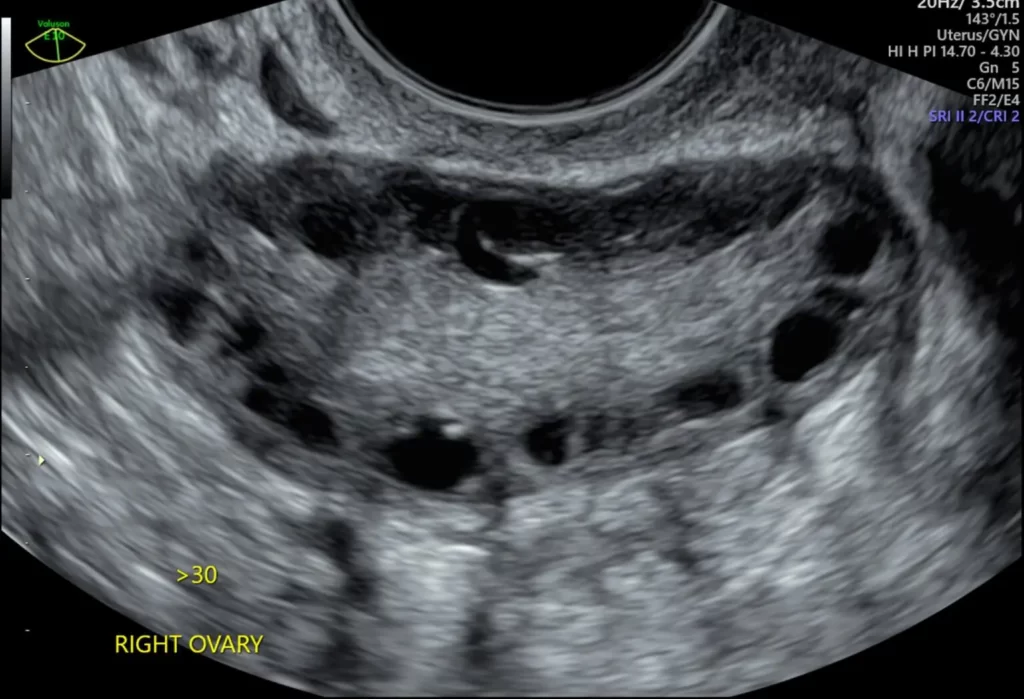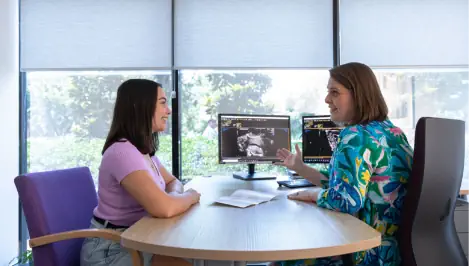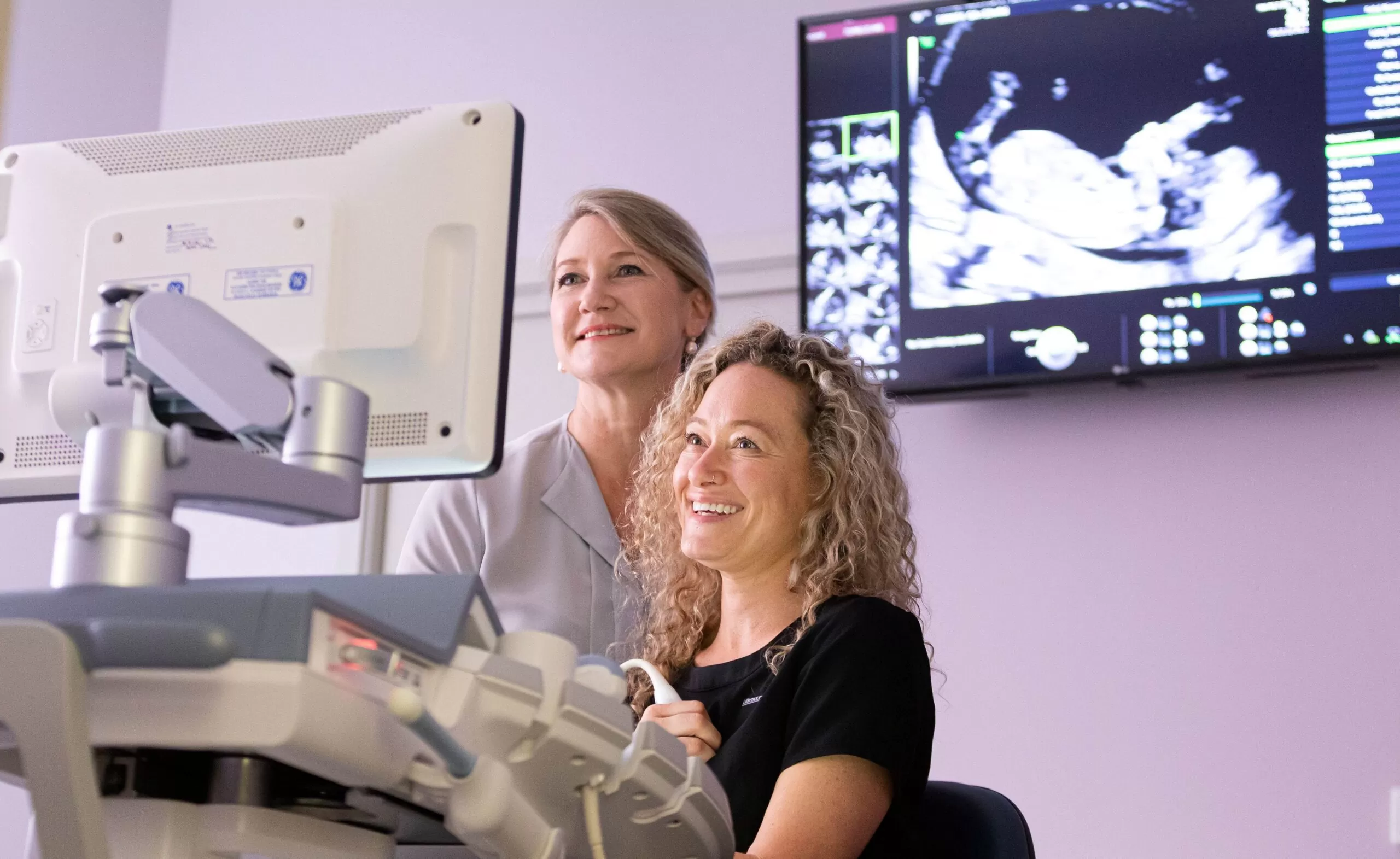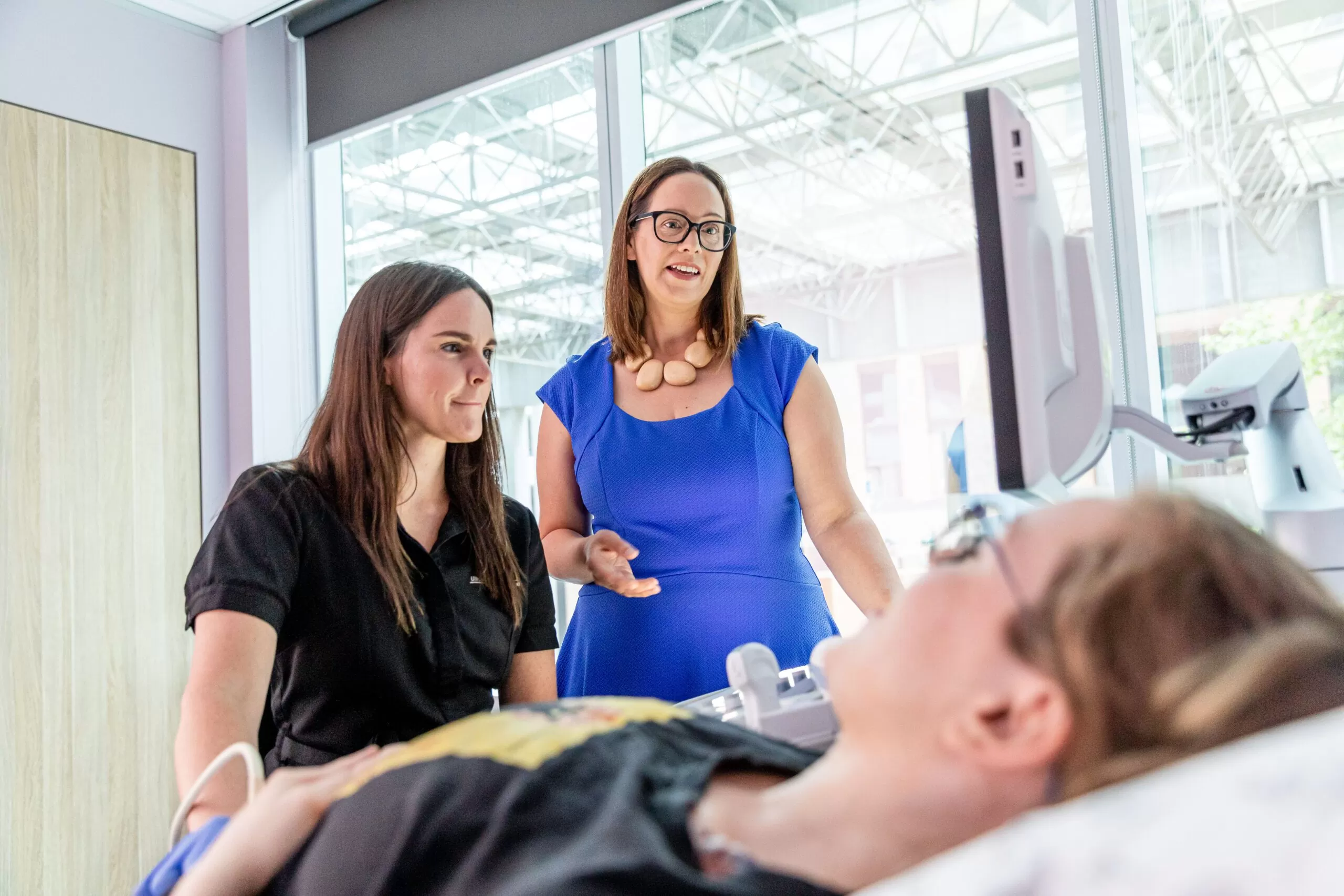Polycystic Ovaries (PCOS) Ultrasound
What are polycystic ovaries?
About 15% of all women have polycystic ovaries. They are so common that one would have to consider them to be a variant of normal.
They are of interest to us because women with polycystic ovaries have a tendency to ovulate irregularly and therefore have irregular periods, or no periods at all for a long time.
If you have been experiencing irregular periods, no periods, or have been experiencing difficulty becoming pregnant, your family doctor or your gynaecologist will likely refer you to Ultrasound Care to scan your ovaries and determine the cause of your symptoms.
What happens with polycystic ovaries?
In women of reproductive age, most ovaries contain tens of thousands of follicles from which an egg could be ovulated. But only some of those follicles are big enough to be seen with ultrasound at any one time. They are called antral follicles. The normal ovary contains about 3-5 antral follicles. Some ovaries have more than this number of follicles and if the number is more than 20, in the absence of any hormonal stimulation they may have a polycystic appearance.

Polycystic ovaries can also be associated with other hormonal problems and when they are, doctors call it the “polycystic ovarian syndrome”. Many women have polycystic looking ovaries however they do not have the syndrome.

What is polycystic ovary syndrome (PCOS)?
It’s important to understand that while many women have polycystic ovaries, they don’t have PCOS.
PCOS is a syndrome or a group of syndromes that affects women’s ovaries and ovulation and has three main components:
- Cysts in the ovaries.
- Irregular or skipped periods.
- High levels of male hormones.
What causes PCOS?
We don’t really know what causes PCOS, but it is believed that PCOS runs in families.
What are the symptoms of PCOS?
Some women experience PCOS symptoms after they have had their first period, but others discover PCOS after they experience weight gain and have difficulty becoming pregnant. The most common symptoms include:
- Irregular periods.
- Heavy bleeding.
- Hair growth (more than 70% of women with PCOS grow hair on their face and body including the back, belly and chest).
- Acne.
- Weight gain.
- Male pattern baldness.
- Darkening of the skin.
- Headaches.
What examination is used to determine PCOS?
If your family doctor or gynaecologist believes you have PCOS as you have two out of the three main symptoms, to confirm your diagnosis they will arrange for a blood test and refer you for a pelvic ultrasound.
How do I arrange for polycystic ovary screening?
Once you have your referral from your family doctor or gynaecologist, please contact the Ultrasound Care practice of your choice that is most convenient for you in Sydney and speak to our admin team to arrange for an appointment.






